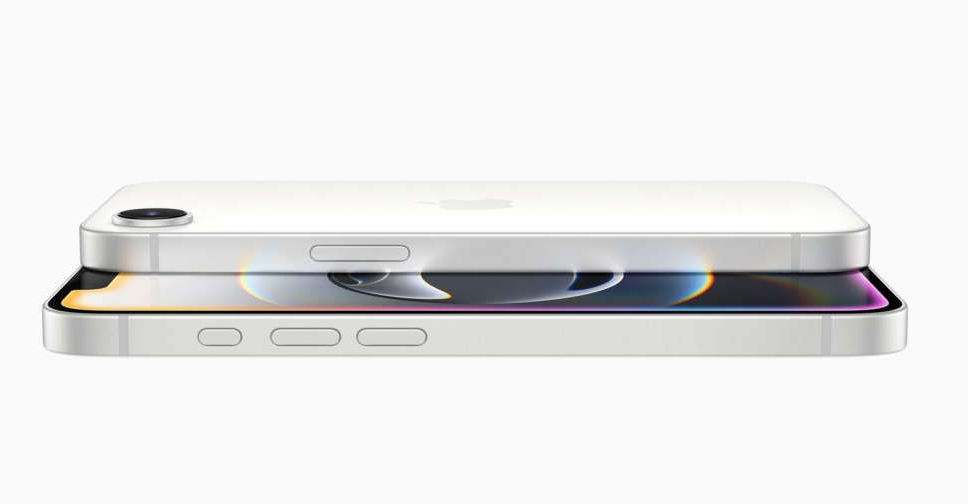
Apple launched its latest low-cost model, dubbed the iPhone 16e, on Wednesday as it looks to grab a bigger share of the mid-range smartphone market and fend off competition from rivals such Samsung and China's Huawei.
The new phone, which leaves behind the SE naming convention for Apple's budget series, will take on popular Android smartphones at a time when consumer electronics makers are looking to add artificial intelligence tools to their devices.
Priced at $599, the iPhone 16e will have enough computing power to run Apple Intelligence, the set of features that includes integrated access to ChatGPT.
Apple late last month forecast strong sales growth signaling that it will recover from a dip in iPhone sales as it rolls out artificial intelligence features to more regions and languages.
However, analysts have been cautious about the sales boost such tools could provide as the AI features are set to be launched in phases in some regions on its latest iPhone 16 line-up and the iPhone 15 Pro model.
The sales of SE model as part of total revenue for iPhones has dropped from 10 per cent from its introduction in 2016 to about 1 per cent last year, according to Counterpoint Research.
The iPhone 16e will come with the A18 chip that powers more expensive models launched in September last year and will support Apple Intelligence out of the box.
It will be about $200 less expensive than the cheapest version of iPhone 16, launched in September.
The iPhone 16e will also be the first device from Apple to feature the C1 chip, which is the first modem designed in house for cellular connectivity, a shift from chips made by Qualcomm.
The new device's camera system will have a 48 megapixel sensor and two lenses, one of which will be a two times zoom lens integrated into the primary camera.
Previous SE models were known for their smaller screen size and attracted a niche group of buyers, but the latest generation comes with a 6.1 inch display, the same as the least expensive iPhone 16 model.
This year's much-anticipated update brings a change to its slab-design, nixing the physical home button and introducing Apple's FaceID feature.
Apple said the iPhone 16e will be available for pre-order from February 21 in 59 countries, including the US, China and India and will be available from February 28.
The SE model would be the last among iPhones to adopt the USB Type-C port for charging, leaving behind Apple's proprietary Lightning connector and letting it return to the European Union market.
Apple had discontinued the third-generation SE model and iPhone 14 in the EU as the products did not conform with local laws requiring USB Type-C charging standard.

 UK's Jaguar Land Rover to halt US shipments over tariffs
UK's Jaguar Land Rover to halt US shipments over tariffs
 US starts collecting Trump's new 10% tariff
US starts collecting Trump's new 10% tariff
 Nasdaq set to confirm bear market as Trump tariffs trigger recession fears
Nasdaq set to confirm bear market as Trump tariffs trigger recession fears
 Dana Gas and Crescent Petroleum exceed 500M boe in Khor Mor field
Dana Gas and Crescent Petroleum exceed 500M boe in Khor Mor field
 China to impose tariffs of 34% on all US goods
China to impose tariffs of 34% on all US goods




